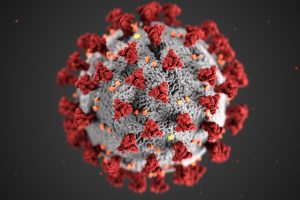Boko Haram is growing more desperate. Losing on the battlefield, the terrorist group that operates in the Lake Chad basin in West Africa seeks to turn abducted children into weapons to spread fear in local communities.
A recent report by the UN Children’s Fund shows that in 2016, Boko Haram used 30 children to carry out suicide attacks in Nigeria, Chad, Niger and Cameroon. The number of similar bombings has risen dramatically this year, with 27 children involved in attacks from January thorough April.
Boko Haram began large-scale attacks in 2009. UNICEF Crisis Communications Specialist for West and Central Africa Patrick Rose told Grasswire that the conflict has resulted in many violations of children’s rights.
“This surge in attacks using children in this way represents an alarming new development in this ongoing crisis,” Rose said. “The attacks seem to be designed to create the maximum amount of fear and disruption by targeting public places like mosques and markets and they have a disproportionate impact on the wider humanitarian response as it increases security concerns, reduces access and limits the already meager incomes of families trying to earn enough to feed their children.”
In April 2014, Boko Haram abducted 276 female students from a Nigerian government-run secondary school in the town of Chibok. Over the last 3 years, only 81 of the students have been able to escape, while 195 girls remain missing.
After the kidnapping, the Bring Back Our Girls campaign unfolded on social media to raise awareness of the incident.
“The international community has been focused on the Chibok abductions and this has perhaps limited the amount of coverage of the wider issues of abduction and protection issues in the crisis,” Rose said.
He noted that despite a steady stream of media coverage on the Lake Chad basin crisis, the international community has failed to provide enough financial support for the affected countries.
“The $154M appeal to help children impacted in the crisis across all four countries was only 40% funded in 2016,” Rose said.

UNICEF is coordinating a number of programs to help address the regional crisis. In cooperation with the Nigerian government, the organization delivers education, health care and clean water for 2.3 million displaced people.
“The first and foremost is the strengthening of schools in the region and the assurance that children have a supportive community and a positive normal childhood, even in the challenging circumstances. Considerable effort has been made to foster vigilance in the communities to ensure that children are not abducted,” Rose said.
At the same time, UNICEF finds it difficult to help children who already are in Boko Haram’s captivity because the organization has no contact with the militants or programs to assist those living in areas controlled by the terror group, which pledged its allegiance to the Islamic State in 2015.
“UNICEF is working hard to facilitate supported reintegration with the families and communities, and these stories about the welcome these children receive will hopefully reach the children still in captivity and give them hope that they can find their way back to their homes, they can find their way back to their loved ones, “ Rose said. “This will hopefully create a greater impetus for these children to see escape or capture as a positive process that can help them and will offset the rumors they hear from the armed group that might be driving the ‘suicide attacks’.”
Some 1.3 million children have been displaced during the conflict and the situation for them remains grave, according to UNICEF.
“The attacks continue to disrupt the return to normalcy and makes every aspect of the humanitarian effort more challenging,” Rose said. “The looming famine and issues of food insecurity in northeast Nigeria means that 450,000 will suffer with severe acute malnutrition this year.”





